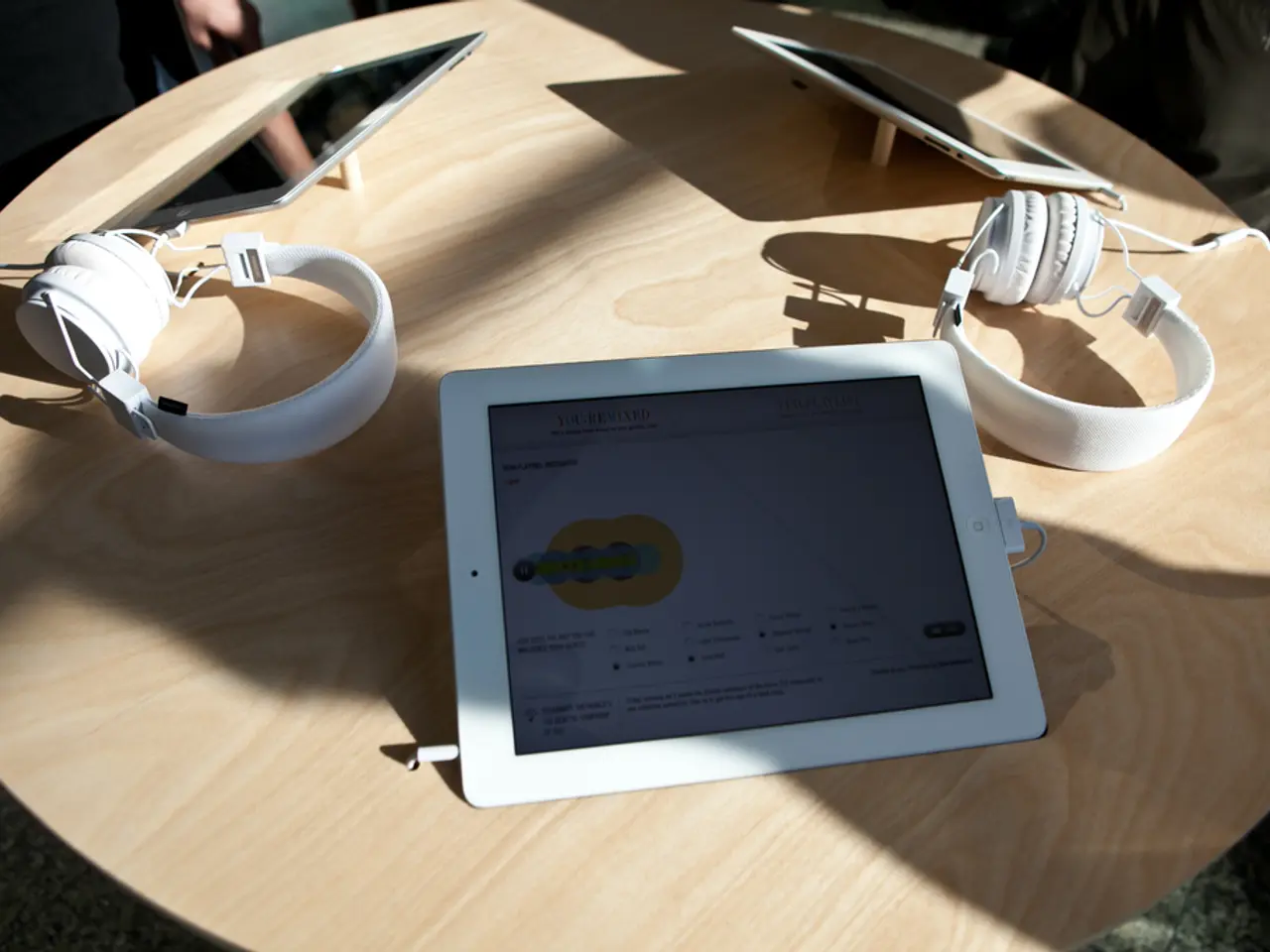Advancements in Wearable Heart Electrocardiogram (ECG) Gadgets
In the realm of healthcare, the integration of artificial intelligence (AI) and wearable technology is revolutionizing the way we monitor and diagnose cardiac conditions.
Wearable ECG monitoring devices, small and unobtrusive, are now capable of measuring a wide range of vital signs, including heart rate, blood pressure, blood oxygen levels, and ECG activity. These devices offer a promising future, with advancements in AI and wireless communications expected to lead to increased integration, improved diagnostic accuracy, and the development of more comfortable and wearable devices.
The integration of AI with wearable ECG monitoring devices significantly enhances healthcare quality and disease diagnosis. AI algorithms can analyze ECG data with high sensitivity and specificity, detecting arrhythmias like atrial fibrillation even during normal heart rhythms. This leads to earlier detection of cardiac abnormalities and more personalized care.
One of the key impacts of this integration is improved diagnostic accuracy and speed. AI-powered ECG interpretation reduces diagnostic errors by outperforming human experts in spotting common heart problems. Additionally, it substantially shortens the time from ECG acquisition to result reporting—from days to hours—enabling timely clinical interventions, particularly in emergencies.
Another significant impact is continuous and remote monitoring. Wearable ECG devices provide real-time, long-term cardiac data outside clinical settings. This constant monitoring not only empowers patients but also facilitates early detection of arrhythmias or heart failure progression, reducing emergency visits and hospital stays.
Enhanced clinical decision support is another benefit. AI algorithms, including neural networks trained on combined clinical and ECG data, improve the prediction of conditions like left ventricular hypertrophy and heart failure. These tools assist clinicians in optimizing treatment strategies and personalizing patient care, leading to better outcomes.
Integration with electronic medical records (EMRs) streamlines access to patient history and cardiac findings, improving communication among healthcare teams and accelerating care delivery while maintaining data security and compliance with regulations like HIPAA.
The recent decision by the Centers for Medicare & Medicaid Services (CMS) to reimburse AI-enabled ECG analysis facilitates broader adoption of these technologies in clinical practice, providing financial sustainability. This encourages innovation and widespread use of AI diagnostics in cardiology, potentially lowering overall healthcare costs through earlier detection and treatment.
Using wearable ECG monitoring devices could reduce diagnostic errors by up to 30%, thereby improving patient treatment outcomes. AI plays a pivotal role in analyzing medical information and providing accurate recommendations for wearable ECG monitoring devices.
However, managing the vast amounts of data generated by these devices presents a challenge. Advanced protocols for data protection and cybersecurity will be developed to ensure safety and privacy in the use of wearable ECG monitoring devices.
Wearable ECG monitoring devices are currently used in medical institutions for the early detection of arrhythmias and remote patient monitoring, particularly for those suffering from chronic diseases. The scope of usage for these devices is expected to expand beyond just ECG monitoring to include other health indicators, creating a comprehensive health system based on continuous monitoring and early prevention.
AI is considered the pivotal element that will transform wearable ECG monitoring devices into integrated diagnostic systems, improving diagnostic accuracy and reducing medical error rates. As we move forward, the progress in wearable ECG monitoring devices is not solely dependent on technical advancements but also on how they integrate with existing electronic medical record systems and established AI systems.
Modern studies rely on a comprehensive analysis of published research in the field of wearable ECG monitoring devices and artificial intelligence. Our website offers specialized training courses for medical engineers to prepare them to play an active role in shaping the future of smart healthcare. The progress in this field promises a future where healthcare is more personalized, proactive, and efficient.
- The integration of artificial intelligence (AI) with wearable ECG monitoring devices is revolutionizing healthcare, specifically in the detection and diagnosis of cardiac conditions.
- AI algorithms, such as those trained on combined clinical and ECG data, can analyze ECG data with high sensitivity and specificity, even detecting arrhythmias during normal heart rhythms.
- Improved diagnostic accuracy and speed are key impacts of this integration, with AI-powered ECG interpretation reducing diagnostic errors and shortening the time for reporting results.
- Wearable ECG devices provide constant, real-time monitoring outside clinical settings, empowering patients and enabling early detection of arrhythmias or heart failure progression.
- Enhanced clinical decision support is another benefit, as AI algorithms can improve the prediction of conditions like left ventricular hypertrophy and heart failure, assisting clinicians in optimizing treatment strategies.
- The integration with electronic medical records (EMRs) streamlines access to patient history and cardiac findings, improving communication among healthcare teams and accelerating care delivery.




